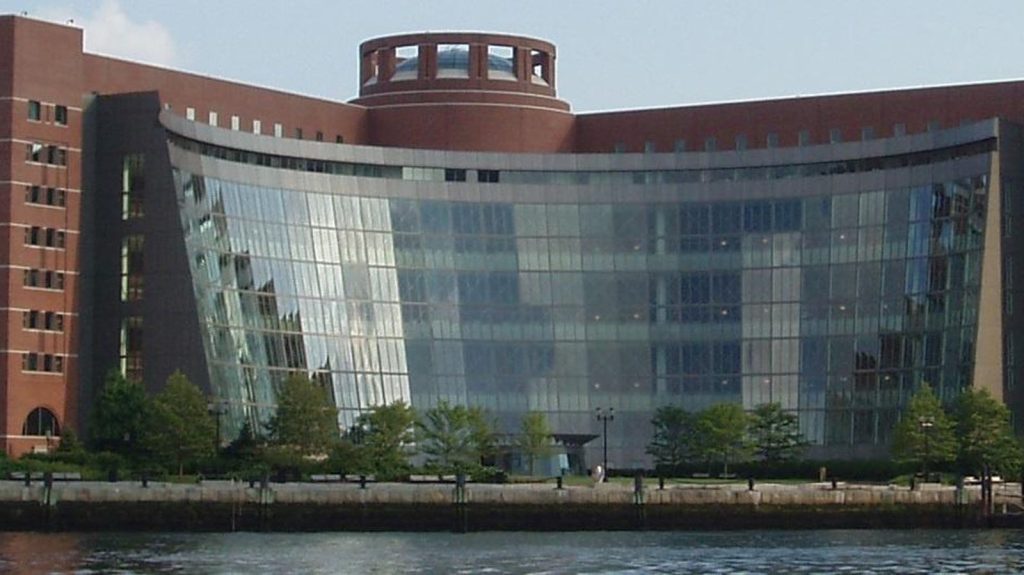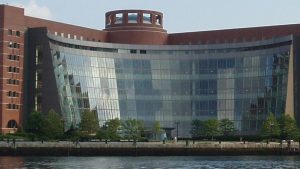While cannabis rescheduling and legislative efforts dominate the attention of the cannabis legislation discussion, an assortment of cannabis operators are attempting a judicial branch end-around in Massachusetts.
Verano Holding Corp., which operates in 14 different states, along with Massachusetts-based companies Canna Provisions, Wiseacre Farms, and cannabis courier Gyasi Sellers sued Attorney General Merrick Garland in U.S. District Court of Massachusetts on Oct. 26, 2023 seeking an end to the federal government’s prohibition of cannabis.
Both sides of the case are preparing to present oral arguments on Dec. 5, before the First Circuit Court of Appeals. This particular circuit court previously found that the U.S. Constitution’s Commerce Clause, which limits the government’s ability to hinder interstate commerce, can apply to cannabis in certain instances.
Plaintiffs claim that the Controlled Substances Act leaves them unfairly susceptible to legal scrutiny, while also arguing that the CSA should no longer apply to cannabis because of the federal government’s growing acceptance of legal state markets over the last decade.
At the same time, the plaintiffs argue that the law unfairly limits access to federal grants, banking services, payroll services and investments, as well as from processing credit cards for purchases. Cannabis operators are often required to deal in large sums of cash, which they argue makes them ripe for robbery, potentially creating a public safety risk.
The government was able to sway the U.S. District court to rule against the plaintiffs leading to this current appeal.
The government continues to argue that the plaintiffs have no legal standing in their lawsuit. Specifically, the plaintiffs cannot show that they have been harmed by the federal prohibition of cannabis while the federal government continues to respect state laws that have legalized adult-use and medical markets.

Best High-Yield Savings Accounts Of 2024

Best 5% Interest Savings Accounts of 2024
The government also argues that plaintiffs are attempting to improperly undermine the rescheduling process for marijuana that the federal government is currently in the middle of.
“Plaintiffs identify no fundamental right that can be violated by states but not by the federal government. Nor do they offer any plausible ground for the assertion that there is a fundamental right to grow and sell marijuana,” said the government’s 44-page appellee’s brief.
The parties are scheduled to present oral arguments before a panel of First Circuit judges on Dec. 5, 2024 in the Moakley Courthouse in Boston, Mass.
The Commerce Clause
The Commerce Clause of the U.S. Constitution holds that federal or state governments cannot not legally interfere with interstate commerce.
The First Circuit has a history of upholding DCC in relation to cannabis. In Northeast Patients Group et al. v. United Cannabis Patients, the First Circuit ruled that Maine’s residency requirement for medical operator license holders violated the DDC. While it remains illegal for cannabis to be transported across state lines, investment dollars for cannabis businesses are still fair game.
Other cases have relied on the DCC to challenge residency requirements with varying results.
In Variscite NY One Inc. v. Office of Cannabis Management, an applicant to New York State’s adult-use cannabis program challenged the state’s requirement that retail applicants have a prior cannabis conviction from within the state. The plaintiff in that case had a prior conviction from Michigan. That case never made it to the circuit court level but it did temporarily delay the roll out of New York licenses.
Plaintiffs Want to Reverse a 20-year old SCOTUS ruling
The first major challenge from the federal government to state-legal medical cannabis took place during the George W. Bush administration, when Bush’s Department of Justice began cracking down on medical cannabis in California. Angel Raich and Diane Monson sue the federal government after DEA agents raided their homes and destroyed the cannabis plants they each grew for personal use to treat their respective chronic health problems.
That case, Gonzalez v. Raich, ultimately made it to the Supreme Count, which ruled the U.S. Constitution’s Commerce Clause, which bars the federal government from interfering in interstate commerce, does not apply to state-legal cannabis as long there was still a federal prohibition. Justice John Paul Stevens argued in his majority opinion that despite state law, there was still a clear intention from the federal government to prevent the spread of illegal pot across state lines.
The plaintiffs in the Canna Provisions case argued in their appellant briefs to the First Circuit that this is no longer the case.
Congress allowed Washington D.C. to legalize medical cannabis in 2010. The following year, then-Deputy Attorney General James Cole issued what became known as the “Cole Memo” which instructed the Department of Justice to prioritize enforcement of the federal prohibition against individuals in compliance with state regulations.
Four years later, Congress enacted the Rohrabacher-Farr Amendment which effectively defunded any DOJ action against state-legal cannabis. That amendment has been renewed every year since.
Donald Trump’s first attorney general, Jeff Sessions, actually rescinded the Cole Memo in 2017, but since then the DOJ has continued to operate as if the memo was still in effect.
Meanwhile, about three-quarters of all states have legalized medical and half have legalized adult-use.
“In the nearly 20 years since Raich, Congress has enacted legislation demonstrating that it no longer seeks to control comprehensively, let alone ban, all marijuana commerce. Thirty-eight states have now legalized and regulate marijuana within their borders,” said the 88-page appellant brief from the plaintiffs.
Source: https://www.forbes.com/






More Stories
Where To Eat On Christmas Eve In New York City
Test-Driving The 2024 Rolls-Royce Spectre
IGY Pairs Yachts And Golf For Iconic Series Of Luxury Events